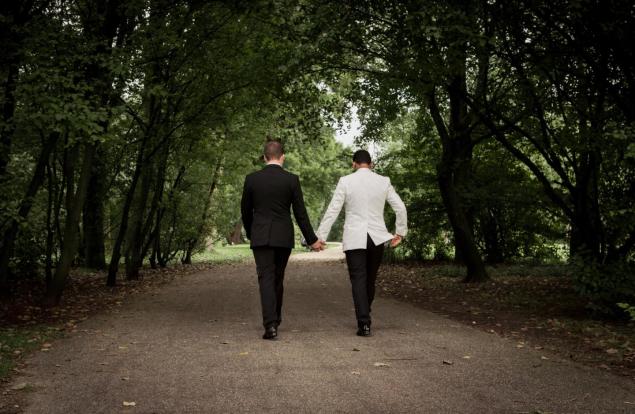Research Interests
My research examines the social determinants of health throughout the lifespan within the context of social relationships. My work focuses on questions related to how individuals and their social relationships falter or thrive within their broader social networks of friends, family, and society at large. Specifically, I examine the roles that social support, social prejudices, social abilities, diversity, and affection play in contributing to relational, mental, and physical health. To do so, I rely on various research methodologies, including daily diaries, online surveys, virtual reality, qualitative and quantitative investigations, psychophysiological measurement, hormone analysis, experimental designs, and longitudinal studies. I also study Holocaust knowledge among university students and Holocaust Education. Below you will find brief descriptions of the topics and questions currently filling the coffers of my research curiosities!
Do you want to be a participant in a KLB Research Study? Click Here to join our Participant Database or click on the Participate button at the bottom of any page on this site.
Are you looking for student research opportunities? Visit the KLB Research Lab to learn more about how you can get involved or click here to complete the supervision applicaiton.
SOCIAL SUPPORT FOR RELATIONSHIPS
If your friends and family disapprove of your romantic relationship or choice in mate, how does that influence your relationship? Do relationships that experience support last longer than those that meet with disapproval? Are there health implications associated with having support for your relationship? Do individuals in marginalized relationship types (e.g., same-sex, age-discrepant, interracial) experience similar levels of social support as individuals in non-marginalized relationships? These are just some of the questions that I seek to answer within this line of research. I have examined these questions through the use of longitudinal survey methods with same-sex and mixed-sex couples. My current work is beginning to examine how people make decisions about their relationships based on the levels of support they perceive for their relationship. If your friends don't approve, do you find a new mate? Does the opinion of your best friend matter more or less than the opinion of your mother?
Beyond the process of making decisions based on perceptions of social support for one's relationship, I am also interested in understanding more about how people judge the relationships of their friends and family. How do you determine if your best friend's new mate is as great as your friend thinks they are? Furthermore, when you don't like your friend's mate, do you tell your friend or keep quiet? How do these decision processes change when you disapprove of a family member's relationship, such as the relationship of a son or daughter? Are social network members consciously aware of the potential for disapproval to be interpreted as prejudice when providing their opinions on marginalized relationships?
Public Displays of Affection & The health implications of relational affection
Are you a hand-holder or do you avoid all forms of public affection? Does sharing affection with your partner in public improve your relationship and help you deal with day-to-day stress? What happens when these questions are applied to marginalized relationships, such as same-sex relationships, interracial relationships or age-discrepant relationships? Do these couples have more difficulty sharing affection in public, and when they do, do they experience consequences for sharing affection in public, such as increased physiological stress or even the threat of violence and harm?
In this line of research, I examine the frequency and type of public displays of affection in which different types of couples engage. I also examine the physiological correlates of these types of affection, investigating how the sympathetic nervous system responds to different types of affection and whether or not responses are similar across relationship types.
Femmephobia, Femme Theory & In-Group Discrimination
Working with Rhea Ashley Hoskin, author of Femme Theory, I examine how societal devaluations of femininity lead to experiences of discrimination and oppression. In particular, this line of research investigates the experiences of femme-identified individuals as well as individuals who are targets of femmephobia (e.g., a straight man deemed to be too 'feminine'). Rhea and I are working together to develop a measure of femmephobia so that this important construct can be examined from multiple perspectives across different disciplines. To date, we have explored femme identity development and the role of femmephobia in predicting homophobic aggression, religiously-linked eating disorders, and other facets of mental health and well-being.
The Psychophysiology of Prejudice
What happens inside the minds and bodies of prejudiced individuals? When a homonegative individual witnesses two men holding hands or kissing, does he or she experience a physiological response associated with their prejudiced attitudes? Do different types of prejudice all elicit similar physiological responses, or do they vary by the target of prejudice? Can understanding the physiology of prejudice provide useful hints as to how best to reduce prejudice?
Close Relationships, Sexuality & Sexual Risk Behaviour Among People on the Autism Spectrum
Some ASD individuals, previously known as individuals with Asperger's Syndrome, often desire and seek romantic relationships, yet ultimately experience difficulties maintaining relationships given the unique challenges they face with interpersonal communication. In this line of research, I seek to investigate how individuals on the spectrum navigate romantic relationships, and, more specifically, how they experience their sexual and gender identity. Do individuals on the spectrum (including self-identified Aspies) struggle with understanding processes related to safer sex and intimacy that could put them at a higher risk for sexually transmitted infections, including HIV? Are there interventions that could help youth and young adults to better navigate the complexities of determining one's sexual and gender identity and finding healthy and satisfying relationships?




